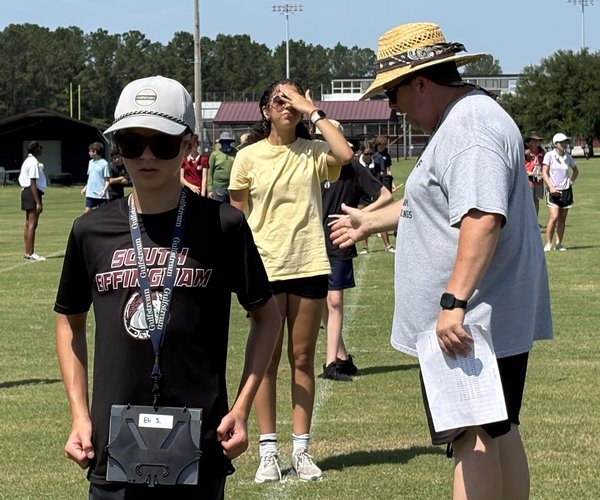ATLANTA—State Supreme Court justices may render a decision in a few weeks on a lower court decision’s to remove Jeff Northway from his office as Springfield mayor.
Northway’s attorney, Charles Herman, and Springfield city attorney Rick Rafter each presented their oral arguments before the seven justices Tuesday afternoon, and the justices had pointed questions of Rafter.
Justice David Nahmias asked Rafter on what specific issues council members wanted to oust Northway.
"His first motion to dismiss, he said he did not have actual notice of the charges against him," Nahmias said.
Rafter responded that if a defendant is uncertain of the charges against him, he can file a motion for definite statement.
"He evidently understood what they were," Rafter said. "He enumerated them in his response to the ethics committee."
Justice Nahmias also said that the open meetings act allows officials to protect what was said in executive sessions — but it doesn’t prohibit them from discussing what was said or discussed away from the public.
"I don’t see him say it violates the statute," the justice said of Judge Woodrum’s ruling. "I don’t have an answer for that."
Rafter said Northway discussed the city’s potential for buying the First Effingham Bank building in Springfield and that could have led to someone else acquiring the property and driving the price up.
"That puts the city in a bad position," he said.
Northway also was charged with discussing information from an executive session in public, violating the trust of the city council. His conversation with his wife and local merchant Jamey Stancell had been captured on tape as Stancell was recording a talk with local historian Betty Ford Renfro.
Rafter said Northway’s comments to Stancell also could undermine the council’s stature in the community, particularly the charges council members steered bids toward friends.
"The difference is these were personal attacks on city council, and it (could) cause problems in the city. It puts them in a bad light," Rafter said.
Justice Nahmias retorted by asking Rafter if he had seen some of the campaign commercials on television.
Rafter said Northway was not raising any new challenges in his appeal to the Supreme Court. Rafter said Northway had failed to "secure a ruling on any issue raised before the court. Rafter added Northway had not shown that enforcement of the judge’s ruling had been an infringement on his person or property.
Charles Herman, Northway’s attorney, said Northway had been denied due process and called into question Section 45 of the city charter, saying it was vague and overbroad.
"This case involves legal questions regarding the grounds and procedures, consistent with due process concepts and Constitutional standards, through which a duly elected public official may be removed from office," Herman asserted.
Herman also said Northway was never informed of the charges against him until June, some seven months after council members moved to remove him from office.
"There was no opportunity to be heard and no standard of proof," he said.
Herman also questioned the four grounds on which the council asked for Northway to be removed. Those included statements that undermined the city council’s authority, the disclosure of executive session discussions, taking part in a discussion of a flooding issue in his neighborhood and a reprimand issued to the city clerk stemming from how city minutes were safeguarded.
"The acts the Superior Court found to be in violation of Section 45 do not satisfy the grounds for removal," he said.
Herman said if someone were deemed to be undermining the authority of a body, "there would be nobody of a minority party left in Congress. It’s a clear First Amendment right."
Rafter said Northway had waived his right to bring up any charge of Section 45 of the city’s charter as unconstitutional and had waived his right for a standard
Northway was removed from office by an Aug. 1 order of Ogeechee Judicial Circuit Judge William Woodrum. The order came after a three-day trial in July, a result of Springfield City Council members asking Effingham County Superior Court to rule on the matter. Council members had asked for Northway’s resignation in November 2010, and Northway refused to step down.
"There needs to be a clear violation of the law," said Justice Harold Melton, "and there needs to be some specificity."
"I think the trial court found there had been a major violation," Rafter replied, "and the trial court found that the mayor had violated the standards by which a public official must conduct himself.
The city’s ethics committee reviewed the complaint against Northway but did not find it sufficient to act, Herman pointed out. But the city council was still the final arbiter of the ethics charge, Rafter said.
"He had not been exonerated," Rafter said. "It’s a two-step process."
Northway also refused to participate in the investigation, though his attorney eventually submitted a written statement, Rafter told justices.
But justices queried Rafter on what was to prevent any governmental body from forcing out someone deemed to be undermining its authority.





